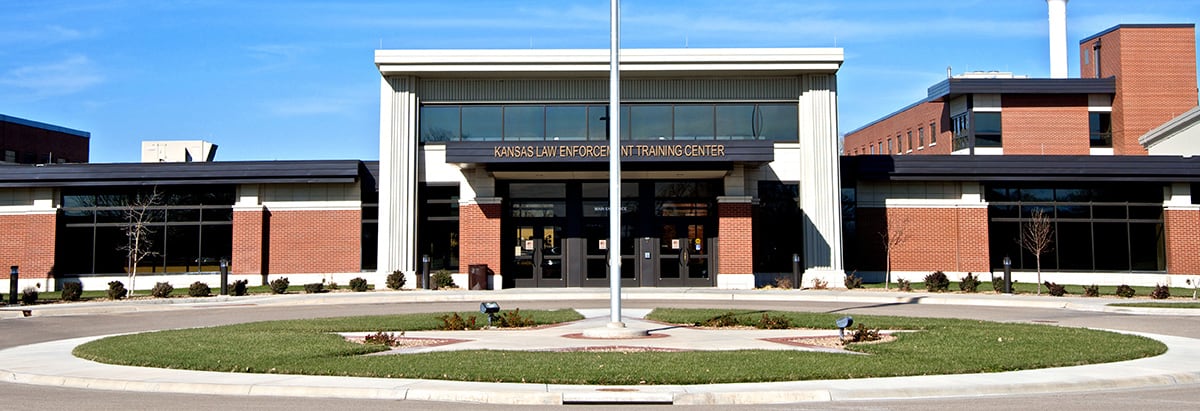|
|
The goal of this course is to identify and understand barriers to fair and equitable policing and how to implement practices of justice-based policing to reduce bias and enhance fair and equitable policing. Completion of this course is estimated to take 1 hour.
|
The Kansas Victim Information and Notification Everyday (VINE) is a service provided through the collaboration of the Kansas Department of Health and Environment, the Kansas Department of Labor, the Office of the Attorney General, and the Kansas Sheriffs' Association. Completion of this course is estimated to take 1 hour.
|
|
First responders often find themselves on the frontlines of the opioid epidemic. In the course of their duties, they are at risk of unintentional exposure to dangerous substances such as synthetic opioids, which are increasingly prevalent in medical emergencies, crime scenes, and other areas of public safety operations. Completion of this course is estimated to take 1 hour.
|
This course examines the critical connections between animal cruelty, domestic violence, and broader patterns of violence. It emphasizes the importance of recognizing the connection and taking action. By doing so, it can help break the cycle of violence and create safer spaces for victims, both human and animal, of domestic violence. Completion of this course is estimated to take 30 minutes.
|
|
This course provides a comprehensive overview of courtroom procedures, emphasizing the roles and responsibilities of law enforcement officers and other participants in ensuring fair and effective trials. Key lessons focused on preparation, professionalism, and adherence to legal protocols. Completion of this course is estimated to take .75 hours.
|
This course looks at the people with ties to a variety of extreme movements and causes that kill people in the United States. Completion of this course is estimated to take 1 hour.
|
|
Native American and Alaska Native rates of murder, rape, and violent crime are all higher than the national averages. When looking at missing and murdered cases, data shows that Native American and Alaskan Natives make up a significant portion of missing and murdered individuals. The overall scope of this course is to strengthen law enforcement protocols and working relationships with tribes to improve investigations, information sharing, and better response to missing and murder investigations of American Indians and Alaska Natives. Completion of this course is estimated to take 1.5 hours.
|
This course provides an overview of the handling of animal welfare cases, including recognizing cruelty and neglect, using proper equipment, and understanding legal frameworks. It emphasizes preparation, humane treatment, and thorough investigation to ensure effective and ethical responses. Completion of this course is estimated to take 30 minutes.
|
|
This course prepares law enforcement officers to effectively respond to incidents involving juveniles by exploring the legal, developmental, and procedural considerations unique to youth. Completion of this course is estimated to take 1 hour.
|
This online course focuses on Mitigating Juvenile Exposure to the Criminal Justice System set forth by Senate Bill 367. Completion of this course is estimated to take 2 hours.
|
|
This online overview will prepare training officers, department support personnel or other department employees to enter training data online, instead of submitting the information on paper. Kansas law requires each certified officer attend 40 hours of in-service training each fiscal year and then report that training to the Kansas Commission on Peace Officers Standards and Training (KS-CPOST).Completion of this course is estimated to take .5 hours.
|
This course equips law enforcement officers with the knowledge to understand Sovereign Citizens. By the end of the course, participants will understand the historical roots and core beliefs of the movement and recognize common indicators and behaviors. Completion of this course is estimated to take 30 minutes.
|
|
Opioids are powerful drugs that can relieve pain but also impair breathing, leading to brain injury and death in overdose. The rising number of deaths involving opioids is referred to as the opioid epidemic. This class discusses the epidemiology, pharmacology, diagnosis, and treament of opioid use. Completion of this course is estimated to take 1.5 hours.
|
This module challenges participants to think broadly and critically about sexual assault, exploring the societal norms, myths, and biases that shape individual and institutional responses. Completion of this course is estimated to take 1.25 hours.
|
|
This module explores the neurobiological and physiological responses to trauma, particularly in the context of sexual assault and other interpersonal violence.
|
This module provides law enforcement and allied professionals with practical strategies for conducting trauma-informed interviews that prioritize victim dignity, trust-building, and engagement.
|
|
This module focuses on the behavior and motivations of sexual offenders, emphasizing the importance of offender-focused investigations.
|



















 Cart (0)
Cart (0)

